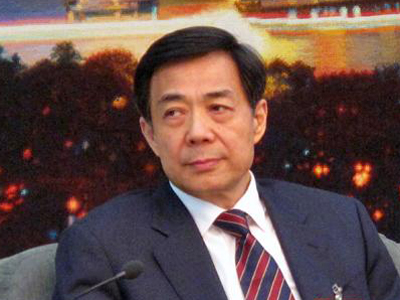The Soft Power of Equal Opportunity
America, like China, will suffer from the inequality fostered by nepotism and cronyism.
 A major story coming out of China in recent weeks—partly as a by-product of the story of fallen princeling Bo Xilai and his wife—has been the extent to which family members of Chinese leaders exploit their privileged positions for personal and professional gain. The offspring of senior leaders are way ahead of their countrymen in attending the best private universities in the West. Family members get installed in executive positions in state-owned enterprises, or in other business endeavors dependent on actions of the state, where they can enrich themselves. These reports suggest a sharp socio-economic stratification and class structure in which political power and economic privilege go hand-in-hand. This raises many questions about social strains, political tensions and possible future political evolution inside China. But it also figures into the global competition for influence between China and other major powers, and that bears directly on U.S. interests.
A major story coming out of China in recent weeks—partly as a by-product of the story of fallen princeling Bo Xilai and his wife—has been the extent to which family members of Chinese leaders exploit their privileged positions for personal and professional gain. The offspring of senior leaders are way ahead of their countrymen in attending the best private universities in the West. Family members get installed in executive positions in state-owned enterprises, or in other business endeavors dependent on actions of the state, where they can enrich themselves. These reports suggest a sharp socio-economic stratification and class structure in which political power and economic privilege go hand-in-hand. This raises many questions about social strains, political tensions and possible future political evolution inside China. But it also figures into the global competition for influence between China and other major powers, and that bears directly on U.S. interests.
The nepotistic disparities of wealth and privilege blatantly contradict the communist ideology to which the People's Republic of China still officially subscribes and is by far the most important subscriber, notwithstanding Deng Xiaoping's de facto abandonment of that ideology as a basis for organizing the Chinese economy. Instead of taking from each according to his abilities and giving to each according to his needs, China appears to have a system that gives to each according to whom he knows and to whom he is related. Ideological hypocrisy and privileges linked to power in communist states are nothing new, of course. And to most people today, the Chinese model has to do not with communism but instead with the blend of state capitalism and a market economy (still under a one-party dictatorship) that Deng wrought and produced stunning economic growth. The nepotism and associated inequalities, however, besmirch even the updated version of the Chinese model. They raise troubling questions, which many Chinese are raising, about how thoroughly corrupt the system is. For foreign regimes attracted to the idea of free economies (and the growth they can bring) coexisting with tightly controlled dictatorial politics, the reports from China raise questions about how much the politics and the economics can be separated. And for many others who are simply interested in a more prosperous life, the idea that the fruits of prosperity are distributed in a way that stacks the game in favor of a privileged few is unappealing.
All of this should present an opportunity for the leader of the free-market, liberal democratic West. In the global competition among alternative models for organizing society, the United States has a chance to show its superiority along the very measure on which the communists long claimed that their model was superior. The attractiveness of one's political-economic model in turn increases the chance of gaining and maintaining other forms of influence. The fact that the Soviet model, for example, still had much appeal in the 1950s and 1960s in regions such as the Middle East and Africa had a lot to do with Moscow's ability to conclude friendship treaties and military-access agreements.
This should present an opportunity. Unfortunately, America's own model has been tarnished by its own form of inequality, not to mention the associated excesses that led to the financial crisis and the Great Recession. Inequality of wealth and income in the United States has increased significantly over the past three decades. Ideologically based denials to the contrary, this is an inequality not just of results but of opportunities. Offspring of the privileged have more channels toward the upper crust than the offspring of others. Much of the biggest riches have gone not to those building better mousetraps and thus a better economy but instead to those who have exploited positions in which they have managed to entrench themselves, either at the top of a poor system of corporate governance or at places in the financial sector where they can profit from creative financial legerdemain.
The restriction of the best opportunities to the already privileged has moved to one of the most important pillars of Western capitalism. The cover story of the current issue of The Economist is on “the endangered public company.” Today “popular capitalism is in retreat,” The Economist tells us, and not only because of state-owned enterprises of the sort that form a major part of the Chinese economy. “The rise of private equity and the spread of private markets are returning power to a club of privileged investors.”
Such trends are regrettable on several counts. As an issue of fundamental fairness. As a matter of economic growth: the apportionment of wealth based on position and privilege rather than on merit and accomplishment is no better for the health of the American economy than it is for the health of the Chinese one. And as a matter of global competition in all its dimensions, because of how the relative appeal of the U.S. model affects a variety of U.S. interests worldwide.
